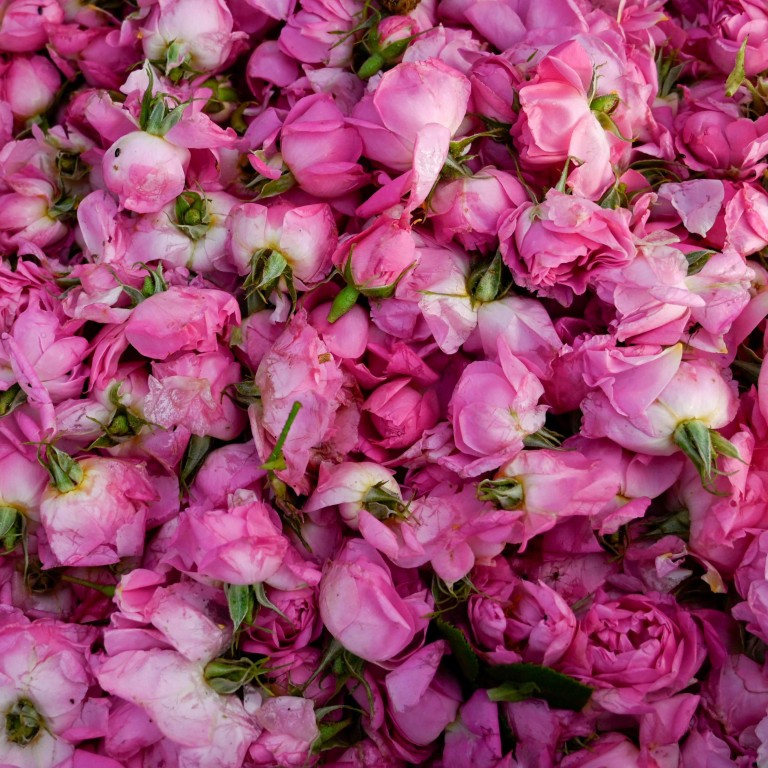
Designer perfumes hit by war and weather as vital ingredient becomes ‘liquid gold’
- Fragrance by luxury brands, such as Christian Dior, Estee Lauder and Chanel, affected by global shortages and unusually hot temperatures that damaged roses
- The distilleries making the products from rose oil run on natural gas, diesel and fuel – commodities whose prices have soared since Russia invaded Ukraine
Business is not a bed of roses for Bulgaria’s rose oil makers these days.
Made from Damask roses grown in the aptly named Rose Valley, the oil is a vital ingredient in the perfumes made by the world’s top luxury brands such as Christian Dior, Estee Lauder and Chanel.
But a heatwave has slashed this year’s harvest of rose petals, labour is hard to find and the global surge in energy prices has increased costs for a product so precious that it is dubbed “liquid gold”.
This year’s oil will be “considerably more expensive,” Plamen Stankovski, a partner at rose oil producer and exporter Bulattars, told AFP in his distillery near Pavel Banya, in Bulgaria’s famed Rose Valley.
Production costs for one kilo of rose oil stood at around 6,000 euros (US$6,300) in 2021, but they have surged by as much as 40 per cent this year. The price of petals alone doubled since last year, according to producers.
WTO holds big meeting: pandemic, Ukraine war, food shortages on agenda
This means that a 4.5-kilo glass jar filled with the thick, golden-yellow oil could sell for more than 45,000 euros this year.
Bulgaria is the world’s top rose oil maker along with Türkiye and the distilleries to make the precious substance run on natural gas, diesel and fuel oil – commodities whose prices soared after Russia invaded Ukraine in late February.
“The price of fuel has gone up two or even three times,” Stankovski said.
Small amounts of rose oil are used in almost every high-quality perfume – not for its aroma, but because its fixative qualities help blend other ingredients and prolong the scent on the skin.
To produce it, huge amounts of petals are boiled in massive metal vats. The vapours are then distilled to separate the oil in a process nearly unchanged since the days of the Ottoman Empire in the 17th century.
On his family’s rose fields near Pavel Banya, Dimitar Dimitrov laments that a chronic labour shortage has plagued the sector for years.
“Picking is the most expensive as it is done solely by hand. If you don’t pick the open roses today, tomorrow they’re gone,” said the 40-year-old, who plucked petals with his father and brother-in-law.
Fertiliser, fuel, ploughing and pruning have all become more expensive, he said.With petal prices almost doubling, he said he hoped “this will cover at least our production costs so we don’t end up in the red”.

To make things worse, a heatwave scorched rose buds before they could open, slashing yields and reducing the picking season by half. The flowers that survived excrete less oil. To extract one kilo of rose oil, 4,000 kilos of petals are now needed, 15 per cent more than usual.
Rose oil production is expected to drop below its usual annual haul of 2.5 tonnes.
Nearly 100 per cent of the oil produced in Bulgaria is exported to countries such as China, Japan, South Korea, Taiwan, France, Germany and the United States.


